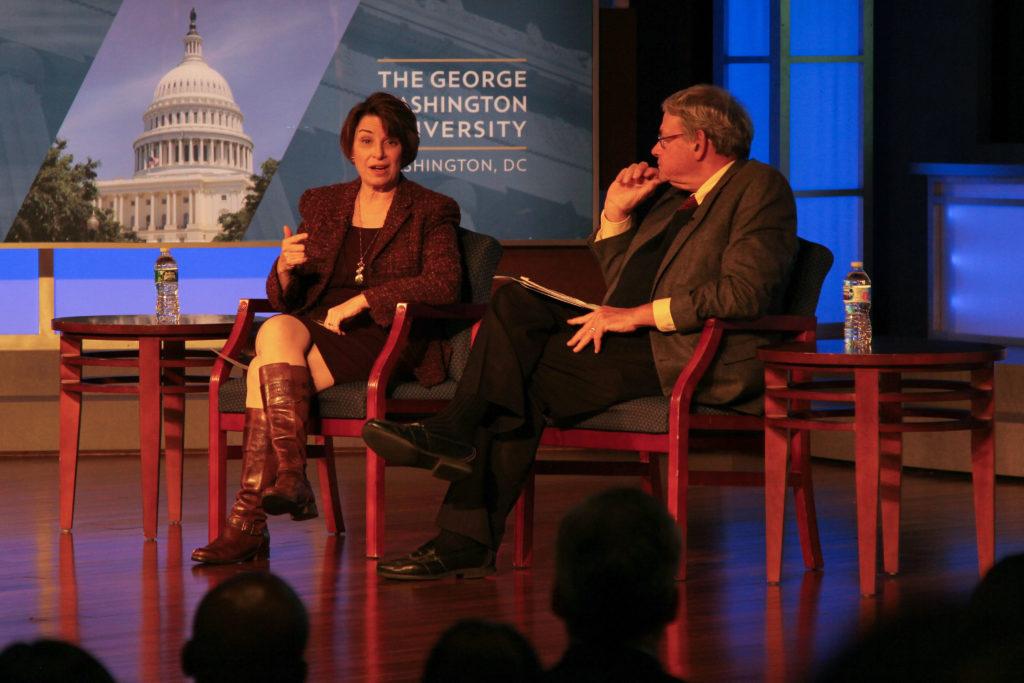The School of Media and Public Affairs hosted three discussions Thursday analyzing the post-midterm election landscape.
Frank Sesno, the director of SMPA, introduced the three discussions. One featured Sen. Amy Klobuchar, D-Minn., another featured two members of the House of Representatives and the last featured three people closely affiliated with D.C. media. At each event, Steven Roberts, a J.B. and M.C. Shapiro professor of media and public affairs and a journalist, talked with the speakers about the midterm election results and their potential implications on the United States.
Klobuchar opened the first discussion by responding to a question about whether Congress and President Donald Trump are at war. She said that in the aftermath of an election, both sides should focus on bipartisan issues, like ethics reform.
“I think that we have just come off of a major national election, and what we should be talking about is protecting the rule-of-law,” Klobuchar said. “We also need to find a common ground where we can find it.”
Klobuchar dodged a question about whether she would run for president in 2020, but she said that whoever the Democratic nominee is, they need to be authentic.
“You’re going to have to have someone that has a compass and someone who is able to lead the party,” she said. “One thing that I learned is that you have to meet the people where they are.”
[gwh_image id=”1072610″ credit=”Tim Biondo | Hatchet Photographer” align=”none” size=”embedded-img”]Rep. Jennifer González-Colón, R-P.R., responds to questions from students at an event hosted by the School of Media and Public Thursday night on the relationship between President Donald Trump and Congress. [/gwh_image]
In the second panel, Reps. Jennifer González-Colón, R-P.R., and Brendan Boyle, D-Pa., discussed how the Democrats’ takeback of the House of Representatives impacts the chamber. González-Colón said dealmaking was now more important than ever.
González-Colón said that despite the president’s “controversial” rhetoric, the legislative process is often bipartisan.
“In the House, we just passed like 100 bills,” she said. “You have a president that may tweet something that is very controversial, but, when you have a bill being introduced, there is a lot of bipartisan work being done.”
At the third panel, Maggie Haberman, a White House correspondent for The New York Times, said the media should prove its legitimacy to the American public by reporting accurately. She placed the blame for the media’s poor image partly on the industry and partly on Trump.
“I think that it is our job to be accurate in our news,” she said. “I think that the media has done a fair amount to erode the people’s confidence on our own without the president, but he has been an accelerant.”
Shawn Turner, a former deputy White House press secretary for national security in the Obama administration, said round-table discussions about Trump on news channels often devolve into shouting matches – but he said it’s up to news consumers to change the narrative.
“I think of the media as a supply and demand business,” he said. “If you turn on CNN and people are sitting there yelling at each other, and you keep watching, you’re saying that that is what you want. It’s on us to say that “that’s not what you want.”





